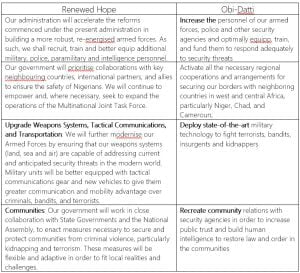Peter Obi, the presidential candidate of the Labour Party, may have required the most time and an embarrassing second attempt at presenting a public manifesto, but the output remains subpar and riddled with multiple instances of plagiarism, notably the duplication of policy ideas and reforms programs from the earlier-published manifesto of Bola Tinubu, the candidate of the ruling All Progressives Congress (APC).
Obi whose party remains embroiled in a financial scandal following reports of funds diversion and misappropriation of public donations, announced the 72-page manifesto titled ‘It’s POssible: Our Pact With Nigerians” on Saturday night.
His announcement put an end to a delay that spanned several months, during which he attempted to shrug off criticisms of his failure to produce an action plan with excuses that drew mockery and condemnation, particularly his claim that the country had no need for a new plan or manifesto.
Despite the long wait and Obi’s rhetoric of change, early review of the 72-page manifesto regarded it as run-off-the-mill and uninspiring. Even more damaging are discoveries of plagiarism and repeated promises to deliver on achievements and projects already scored by the Buhari administration.
We earlier reported his shocking promise to complete the Kashimbila Hydropower Plant, despite its full completion and operational status as facilitated by the APC administration last year.
A deep dive into the document also threw up multiple instances where Obi appeared to directly lift ideas and reform promises from the manifesto of Bola Tinubu titled ‘Renewed Hope’.
For instance, on security, Obi merely regurgitated Tinubu’s pledge to upgrade Nigeria’s weaponry, forge stronger relations between community stakeholders and the security forces, and the expansion of the Multinational Joint Task Force through the rallying of allies and neighbouring countries to display a greater commitment to border security and other safety priorities.

The plagiarism and poverty of original ideas have led many Nigerians to question Obi’s readiness for the presidency, with many claiming vindication over their initial assessment of the former Anambra Governor as “heavy on rhetorics, but light on ideas and action plans.”
Mr. Hassan, a policy expert based in Nigeria’s northeast, knocked Obi for “merely recycling ideas that are all around, and failing to introduce any new approach or practical reform, despite posturing as the candidate with the bold and exciting ideas. It turns out it was all just talk, devoid of knowledge and practical know-how.”
Another expert, Uche Uguwanyi, decried Obi’s “unserious approach to actual governance” which he said was obvious in his “first ridiculous manifesto which was withdrawn and this new update that is rather lacklustre and full of stolen ideas.”
Perhaps the most scathing criticism came from Priye Teibowe, an accountant in Bayelsa State, Nigeria’s Niger Delta Region, who claimed “Obi has exposed his lack of experience with this copycat manifesto.”
“He doesn’t even seem to have a grasp of the status quo, as revealed by his embarrassing promises to do things already done by the incumbent. A man with no knowledge of Nigeria’s present situation cannot take the country forward. He should save whatever is left of his reputation and bow out of the race until the time he is ready for the presidency,” he said.

